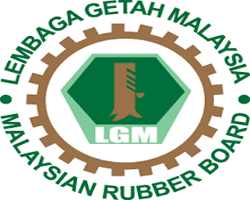Adeyemi, O.A. and Adedoyin, E. O. and Olaleye, O. O. and Njoku, P. C. and Sanwo, K. A. (2015) Effects of ascorbic acid supplementation on broiler chickens stocked at two different densities in a humid tropical environment. [Journal / Magazine]
|
Text
9.Adeyemi-effect of_r3.pdf Restricted to Repository staff only Download (266kB) |
Abstract
The quest to meet up with the high demand for poultry products has made farmers adopt new means of rearing birds without incurring more cost. One of these husbandry practices is by varying the stocking density. Increasing stocking density may however result in additional stress which may reduce production efficiency. Arising from this, a completely randomized design experiment was carried out to determine the effects of ascorbic acid (AA) supplementation on performance and carcass characteristics of broiler chickens stocked at two different stocking densities. A total of 150 day-old Marshall broilers were brooded for 2wk. and randomly allotted into 4 treatment groups of 3 replicates each: Treatment 1 optimal stocking at 7birds/m2, Treatment 2 double stocking at 14 birds/m2and no AA supplementation, Treatment 3 double stocking at 14 birds/m2and 150% AA supplementation and Treatment 4 double stocking at 14 birds/m2 and 300% AA supplementation. Feed intake, live weight, feed:gain ratio and livability differed (p<0.05) among treatment groups. Total and daily feed intake of birds on optimal stocking density (Treatment 1) and those of birds on double optimal stocking density with 300mg AA/litre of water were similar (3823.00 vs 3794.12 g/bird and 91.02 vs 90.34g/bird, p>0.05). Highest weight gain amongst birds on double stocking density was obtained from birds with 300mg AA supplementation/litre of water (1391.82 compared with 1161.48 and 1308.33 g/bird for Treatments 2 and 3, respectively. Dressed weight, dressing percentage, breast cut, drumstick, wing and liver weights as percentage of live weight were influenced (p<0.05) by stocking density and AA supplementation. Gross Margin analysis indicated that increasing the stocking density resulted in % gross margin changes of -56.73, +50.73 and 80.47% for birds produced on double stocking density without AA, double stocking density and 150mg AA/litre of drinking water and double stocking density and 300mg AA/litre of drinking water, respectively compared to the optimal stocking density. The findings of this study conclude that double stocking density of broilers at 14birds/m2and 300mg AA supplementation/litre of water can be adopted in the study location to improve production efficiency per unit space.
| Item Type: | Journal / Magazine |
|---|---|
| Creators: | Adeyemi, O.A. and Adedoyin, E. O. and Olaleye, O. O. and Njoku, P. C. and Sanwo, K. A. |
| Title: | Effects of ascorbic acid supplementation on broiler chickens stocked at two different densities in a humid tropical environment |
| Date: | December 2015 |
| Location: | Malaysian Society of Animal Production website |
| Publication: | Malaysian Society of Animal Production |
| Volume: | 18 |
| Number: | 2 |
| Physical Description: | 13p. |
| Agency Name: | Universiti Putra Malaysia (UPM) |
| Date Deposited: | 02 Nov 2018 11:02 |
| Last Modified: | 02 Nov 2018 11:02 |
| URI: | http://myagric.upm.edu.my/id/eprint/13268 |
Actions (login required)
 |
View Item |







